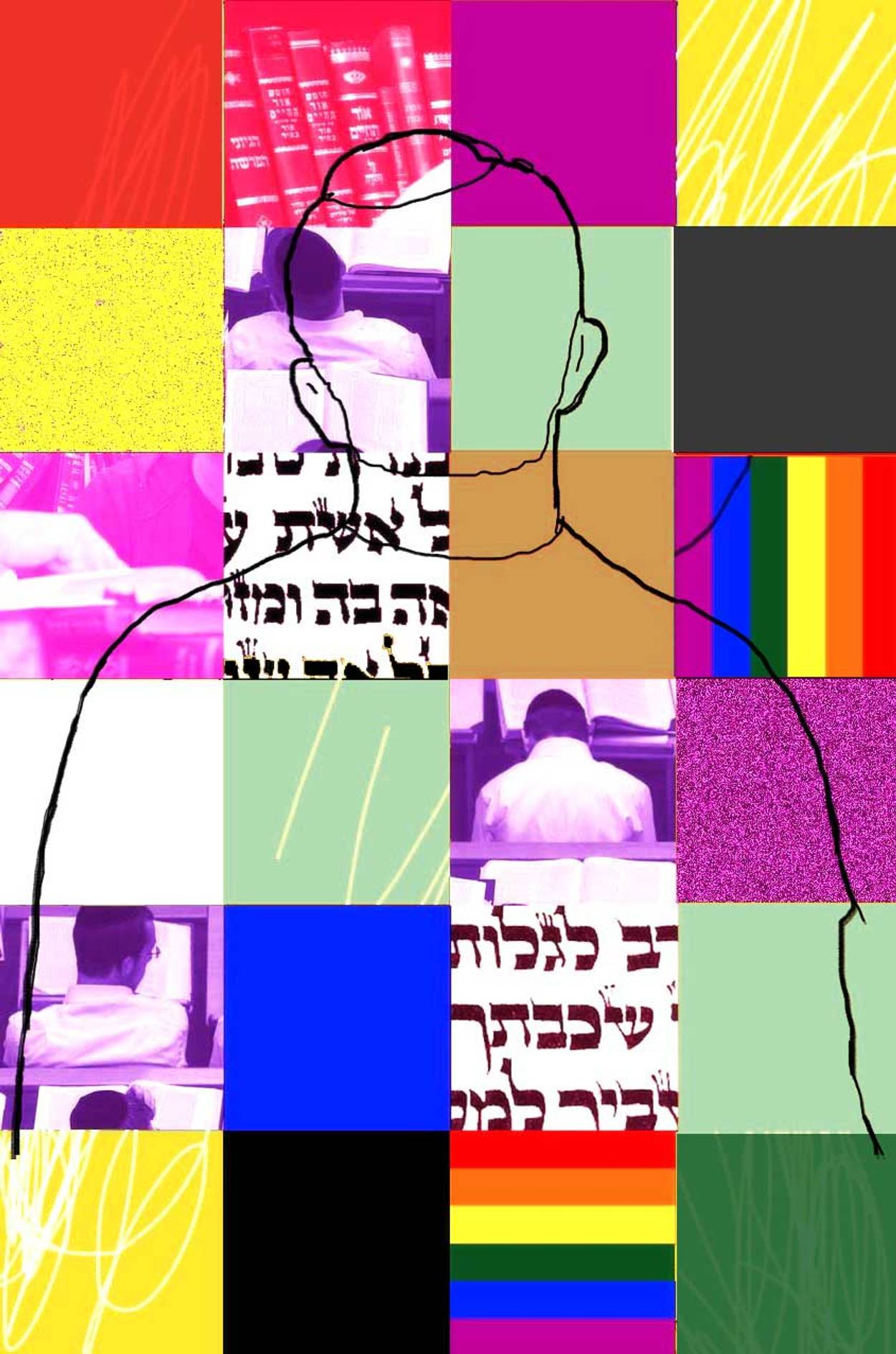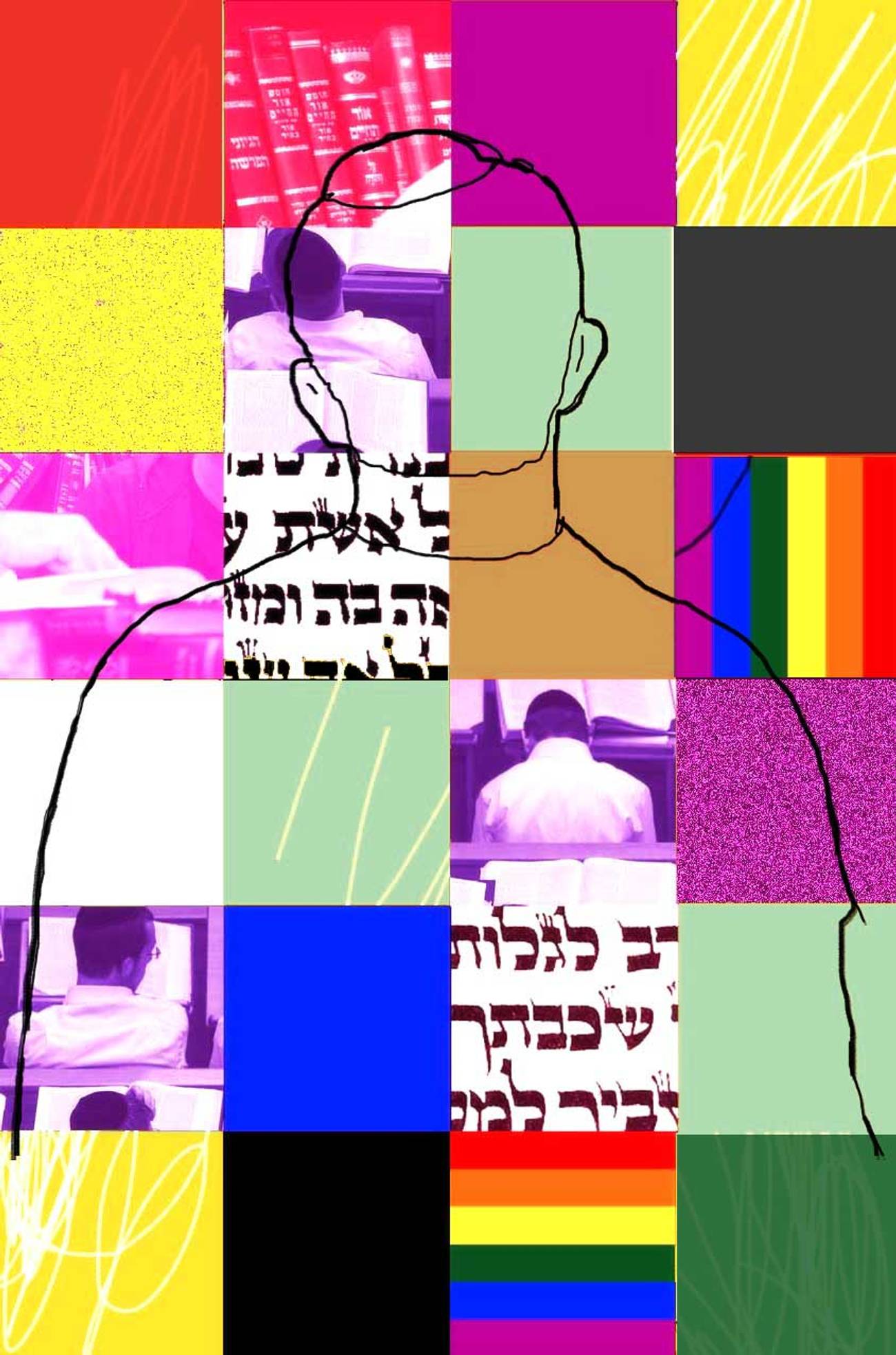‘Why Do All Rabbis Hate Me?’
How the Orthodox community can cultivate compassion and sensitivity toward LGBTQ Jews

Tablet Magazine

Tablet Magazine

Tablet Magazine

Tablet Magazine
A 19-year-old client walked into my therapy office in Monsey, New York, looking defeated. I had been working with him for the past three months, yet I had never seen him this dejected. He asked me point blank: “Why do all rabbis hate me and people like me?”
I immediately understood that he was likely triggered by something related to his sexual orientation and asked him to elaborate. He told me that he often listened to and watched shiurim, lessons by religious teachers, online, and that he was very upset by something he saw. A well-respected rabbi he enjoyed listening to, used “the gays” as an example for something unrelated to the actual content of his lesson, and painted all “gays” as being agenda-driven in trying to change Halacha, Jewish law. This young man tearfully shared how the crowd laughed as the rabbi demonstrated an exaggerated effeminate hand motion as he referred to “the gays.” My client was devastated, and his pain was palpable. His distress and despair led him to seriously contemplate walking out of his yeshiva and his full-time Torah study, for good. But he also described that despite the pain he felt, he still “loved learning Torah and living in a Torah environment.”
After helping him express the profound embarrassment and pain he experienced and providing much empathic support, my client agreed that I could speak to the rabbi who shared the egregious material. His one condition was that I report back whatever the rabbi’s reaction would be. I contacted the rabbi, drove to his home, and met with him. I candidly shared my client’s tormented experience, and the rabbi could not recall having done this and questioned whether I might be mistaken. Having seen the clip myself, I pulled it up on my phone and showed the rabbi the video in question. His face fell and he felt terrible. He did not intend to hurt anyone and had not considered how painful his words and actions were.
Although my client declined the rabbi’s offer to apologize in person, he appreciated that the rabbi offered to remove the shiur from the web. This rabbi never considered that some of his talmidim, students, both in-person and online, either identify as gay, are struggling with their sexual identity, or have close friends who do. Although it was not premeditated, the rabbi was guilty of hostile and painful words. He agreed to be more sensitive and extra careful moving forward, and genuinely thanked me for helping him to begin to understand the struggle of LGBTQ individuals in the Orthodox community. The rabbi did not plan to cause harm, yet this 19-year-old experienced significant pain. Even after the apology, the vision of the rabbi ridiculing him was indelibly engraved in his heart and the hurt remains.
One of today’s greatest challenges for the Orthodox community is how to simultaneously balance the primacy of Halacha and sensitivity to community members who identify as LGBTQ. In addition to those who thoughtlessly make hurtful comments, there are those in the Orthodox community who feel righteous in publicly denouncing the LGBTQ community. They are either unaware of the pain generated by their words, or perhaps they are motivated by a pressing imperative to protect the Torah and its laws. It is only after one acknowledges the pain one may have caused that one can commit to change their thoughts, feelings, and behavior moving forward.
The position of sensitivity and compassion is not just a personal opinion. Consider the following pesukim, biblical verses, and rabbinic teachings that describe how we are commanded to interact with others:
“Its (Torah’s) ways are pleasant and all its paths are peaceful.” (Proverbs 3:17)
“Do not stand by your neighbor’s blood.” (Leviticus 19:16)
“Love they neighbor as yourself.” (Leviticus 19:16)
“Greet all others with pleasant countenance.” (Pirkei Avot, 1:15)
The Torah states: “A male should not lie with a male as one lies with a woman” (Leviticus 18:22). According to the long-established understanding of this verse, the Torah prohibits intercourse between two men. Rabbinic law frequently expands a terse biblical law to include areas not explicitly mentioned in the Torah, and this verse is no exception. For example, the Torah law “Do not cook a goat in its mother’s milk” has come to include, according to rabbinic law, the prohibition of mixing all types of animals and fowl with milk, requiring hours of waiting between meat and milk, having separate sets of dishes and cutlery, etc. In the case of homosexual behavior, rabbinic law expands the Torah prohibition to include all sexual behavior between two men or between two women.
While the prohibition is clear, the Torah does not present a well-defined approach for how a community should interact with gay individuals. While eating a McDonald’s cheeseburger is a Torah prohibition, desiring to eat a cheeseburger is not. There is no prohibition against having desire toward forbidden unions, but the behavior is prohibited. Being gay or identifying as LGBTQ is not a sin. People’s sexual behavior is a private matter and should remain so. Rabbis officiating marriages have learned not to ask if a couple had already been intimate while dating, even though the truth impacts the accuracy of the ketubah, or marriage contract. Similarly, rabbis are not continually assessing their congregants’ adherence to the laws of taharat hamishpacha, family purity, as described by Jewish law. Just as what happens behind closed doors in a heterosexual relationship is private, so, too, all such intimate matters should remain private. As such, LGBTQ individuals who want to be part of the Orthodox community and are trying to find their place in the community should be welcomed.
On the other hand, when there are attempts to change the Torah or to say particular Torah commandments no longer apply, the Orthodox community rightfully protests. Halacha remains the bedrock of our system of behavior, and the Torah, which is the word of God, cannot be modified or amended to match today’s ethos. While it is understandably distressing and painful for those who advocate changing Torah, intellectually honest people should agree that the Torah-observant community cannot accept rhetoric that advocates explaining the Torah contrary to the accepted rabbinic interpretations. Just as Orthodox rabbis would object to a movement that proclaimed that the prohibition of negiah, touching, was outdated or that the laws of taharat hamishpacha no longer applied, the same approach is required for those who advocate amending the Torah in any manner.
The Orthodox community would benefit from increased awareness and appreciation of how their words can, even when spoken unintentionally, cause great pain. We want to create a climate in which the LGBTQ men and women of our communities will want to remain part of our communities. We want them to come to shul, learn Torah, eat kosher, and observe Shabbat. Equally as important, we want them to feel loved and welcomed, the same way we would hope to be treated if we found ourselves in an uncomfortable setting. Our community’s emphasis on family structure is a challenge that will need to be negotiated by anyone who finds themselves outside the normative family structure and especially by LGBTQ individuals. Considering our family-centric communities, we need to be extra considerate of, and welcoming to, others and make great efforts to not hurt anyone.
I recall the childhood refrain “sticks and stones may break my bones, but words can never hurt me.” This is not true psychologically and is not the Torah approach. Speech is a very powerful tool that can be used to advance immeasurable good and can also cause colossal harm. Many LGBTQ individuals already feel attacked and marginalized in the Orthodox community and they experience homophobic comments as someone twisting the knife already plunged into their side.
The Torah demands that we “Walk in the ways of Hashem” (Deuteronomy 28:9), which is explained (Shabbat 133b) to mean that we should emulate the ways of Hashem. “Just as He is kind, so should we be kind. Just as He is compassionate so should we be compassionate.” May we merit to walk in the ways of Hashem, always.
Dr. Chaim Nissel is an Orthodox psychologist with decades of experience working in the Orthodox community.